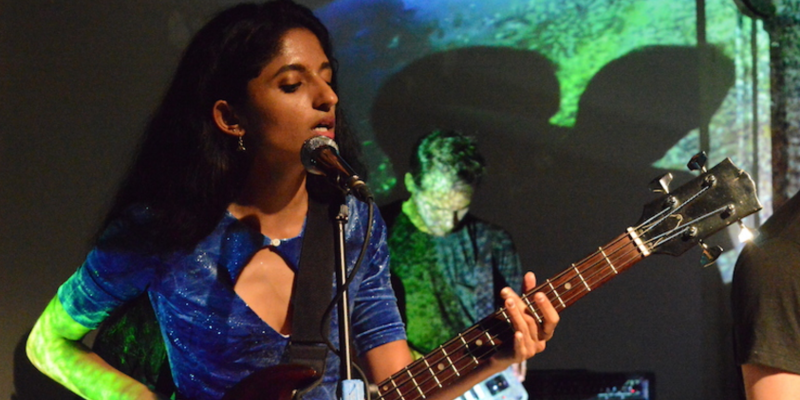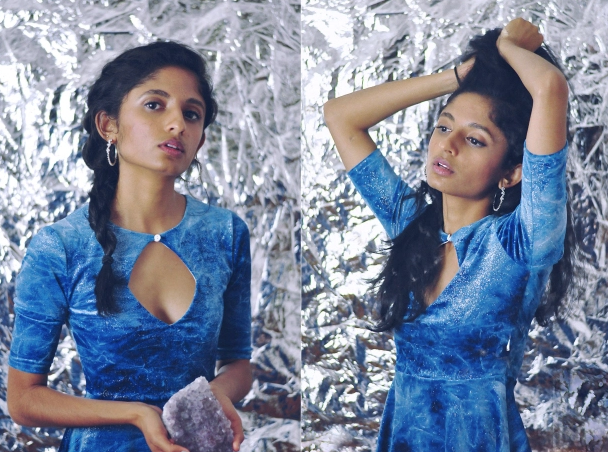We Are Family, a queer and trans youth organization in Charleston, is hosting their newly minted Spirit Day this Friday, October 21 from 6:30 - 9 p.m. Spirit Day was designed for and by LGBTQI members of color in our community, a point of passion for this year's headliner, Anjali Naik of Diaspoura.
Diaspoura's music is an etheareal mix of cascading electronics and post-rock fuzz. Naik describes herself in interviews as a "radical South Asian queer femme musician", making her an ideal leader for Spirit Day's festivities. Grit contributor Brennan Mullin had the chance to interview Naik ahead of her performance on Friday.

Grit: Your profile on Bandcamp mentions that your started making art as a decompression method for "complex emotions stemming from occurrences that may have happened yesterday or before her lifetime." What do you mean by that?
Naik: Growing up as a first generation American in the South has been difficult to say the least. People have always been confused by my skin color, making me feel like I don't belong in the South, even though it has been the only place that I know. I have learned that assimilation is not going to liberate me, and I have used my art to cope with the identity-crisis I've struggled with and redefine myself for anyone still asking where I'm from.
Diaspora means a displacement of people from their original home to somewhere new. How does that definition play into the music?
Diaspora is an interesting phenomenon that a lot of times has happened because of harm and threat, and it has also forced people out of their homelands as well (thinking about indigenous Americans and gentrification). We all have some reflection to do in terms of the space we take up and why, and I found that my stage name has opened up lots of conversation about this type of history that's woven deeply into our daily lives.
What existing art influenced you while writing the album?
The work of electronic artists like Toro Y Moi, a former resident of SC, encouraged me to carve my own sound out even when it's not like anyone around me. MIA has been a major influence one of the first mainstream South Asian diasporic and radical musicians who also does a lot of great visual art and videography. I also take inspiration from powerful culture-shifting musicians like Nina Simone and Erykah Badu.
How did your art transition from a visual to an aural medium?
I have always been interested in working in different art forms, many times at once. It helps me process my emotions in different ways, and I don't know if I'll ever settle with just one art form and one medium.
You're offering your album as a USB stick as opposed to more traditional physical methods, like a CD or an LP. What role does technology play in the Diaspoura project?
Along with pursuing more interdisciplinary art, I like exploring the use of technology in displaying my art. That may seem obvious as I make electronic music, but I also fully believe that technology and social media has a lot to with social movements and accessibility. Things like selfies and hashtags have built power and community for oppressed groups. I embrace the new ways that we're able to share our stories with the world.
What's your favorite part of performing live?
I have a sense of freedom on stage that's one of the greatest feelings I've ever had.
Dispoura's debut album, Demonstrations, is available now on Bandcamp.


